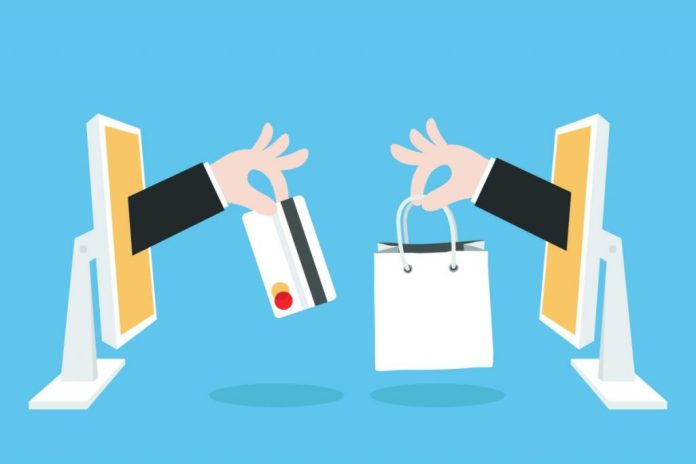It is helpful for the owner of a booming, dynamically developing marketplace to know psychological nuances that will help find an approach to almost any visitor to your web resource.
Table of Contents
Why do people make purchases?
Of course, there is no complete answer to this question. If you ask Google about this, you will get an endless list of links to publications, some of which provide one hundred or more such reasons. This article will not delve into such meticulous detail, but will offer you some information to think about. Based on your own practical experience and the specifics of your store, you can develop the most effective strategy to create a maximum comfort zone for any customer who has come to you. At the same time, it is vital to remember that your site should fully comply with the requirements that are de facto standards for successful eCommerce resources. However, if such recognized experts as seclgroup.com are engaged in its development and promotion, you are guaranteed an impeccable result.
Here are just a few reasons that prompt people to acquire certain things. Please note: far from always, the question of buying is a matter of receiving something necessary. It is no accident that you can often meet stuff you find surprising, but these goods are in stable demand. The reason for this is a complex set of logic that we will try to figure out.
- The desire to cause love and admiration. There is an opinion that successful people are more popular than others. And expensive things, at first glance at them, in your hands push the idea of success. It is unlikely that the last iPhone model is unlikely to give you a fundamentally different user experience than the previous one. However, the fact that you can afford such a purchase can cause admiration for the person (or those people) you strive to impress. And, as it frequently happens, from respect to love – just one step.
- Status indicators. This point echoes the previous one. Suppose in the circle, the belonging to which you want to emphasize, certain symbols of the status are adopted. In that case, you will also have to use this system of identification which militaries call “your or foe,” and, for example, to purchase Vacheron Constantin watches even if you were ready to get by with an electronic clock on a mobile phone.
- The opportunity to show loved ones how important they are to you. Just recall the beautiful slogan of De Beers from the poster depicting a diamond necklace: “Remember how you dreamed of a drill with twenty speeds? So, for HER, this is the same.”
- Conditions to earn more money. In this case, we are talking not only about the attributes of status, allowing you to make your unique trade proposal to people rotating in those areas where you would only step in if you respond in appearance to specific standards. We also mean the tools of production that allow you to increase the final value of your products. It can be a new camera for a professional photographer, a graphic tablet for a web designer, etc.
- The desire to save. Yes. As paradoxically as the statement “I spend money to save it” looks, this approach is quite logical. For example, you save significant amounts in the long term by buying electrical appliances with a lower energy consumption coefficient.
- The endeavor to stand out. Some people get things to become like someone. Others, on the contrary, seek to emphasize their personality. Remember, for instance, the black turtlenecks and white sneakers of Steve Jobs, which became his peculiar business card.
- Happiness. As Freddie Mercury said: “You can’t buy happiness for money. But with their help, you can be very close to it.” Will someone argue with the statement that some purchases can make us happy?
This list can be continued literally to infinity. However, even these several examples clearly show how different the approach of your managers should be to each customer and how important it is for the presentation of the goods in your store to include various aspects relevant to miscellaneous customer motives.
10 types of buyers
Below, we give a relatively conditional list of the ten most common types of buyers. Naturally, it is as incomplete as the above listing of reasons, prompting people to make purchases. It is also apparent that any customer can be guided by any cause or a set of them. Nevertheless, even a general understanding of his behavior’s nature and hidden springs can provide invaluable assistance to an experienced sales specialist.
- Economic. More than half of the visitors to any online store are looking for discount goods. Check whether your special offers are striking, and in each group of products, some look more attractive than others from this point of view.
- Inexperienced. Such visitors do not know how to purchase precisely what they need. Someone is embarrassed by the dimensional grid, and someone by technical characteristics. Be prepared to help them.
- Unsure. This type can choose an infinitely long time between different options, colors, styles, etc. Watch out that after long thoughts, they do not leave you without buying.
- Sociable. Such customers depend on the reviews of those who have already acquired a similar thing. Your task is to organize feedback so that such information is present in your store and contains answers to possible questions.
- Hastening. This type is characterized by the briefest and capacious desire to get all the information that interests them and quickly complete the purchase. Think about how to help them with this.
- Searchers. These buyers have yet to make a final decision and, perhaps, did not formulate for themselves what exactly they want. Pay attention to their confusion and help to decide on the choice.
- Advanced. These are experienced, shopping masters. The convenience and visibility of choice, simplicity, and reliability of transactions are essential for them.
- Random. Most likely, such buyers looked at your site simply out of curiosity. But you carefully read the previous section and know how to arouse the desire to buy into them. Don’t you?
- Emotional. This type is most prone to impulsive purchases. If the way of representing your goods can cause an emotional response in them, then they will not leave your store empty-handed.
- Loyal. These are the buyers that any store owner dreams of. They buy it from you because they trust your brand and like your service. These buyers once belonged (and continue to belong) to any of the above types. However, when they come to you for the first time, feel special, and are left satisfied, you can enclose a bet on all your money: they will become your loyal clients!












